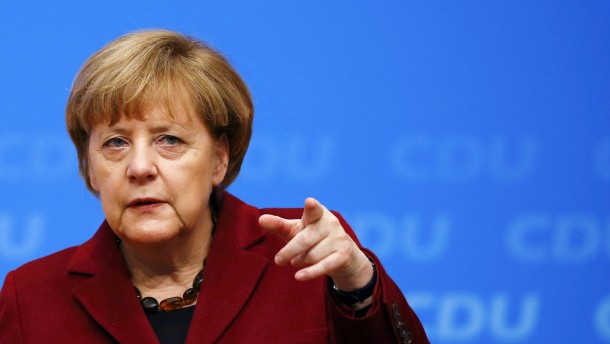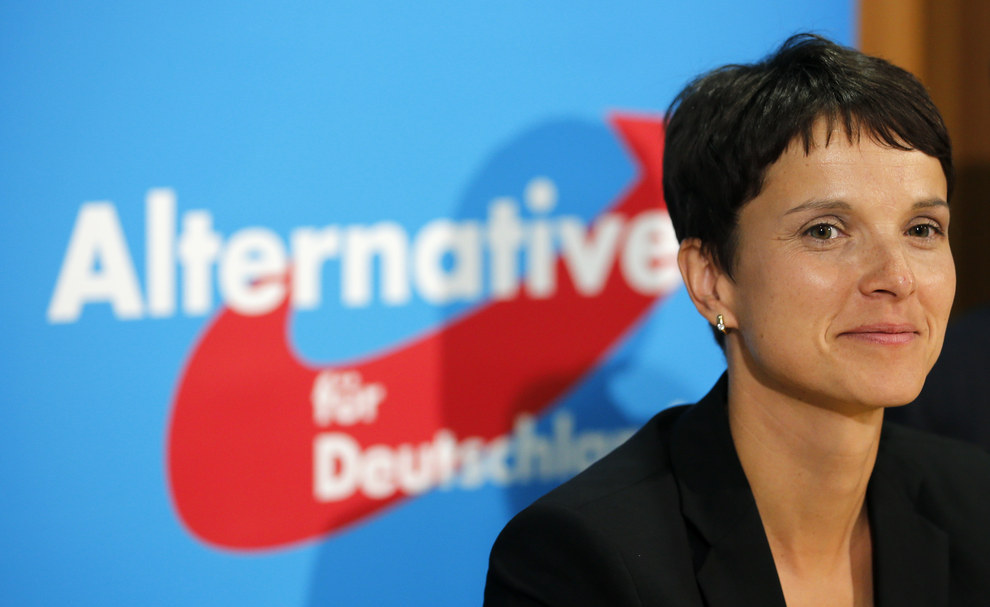German guy
DP Veteran
- Joined
- Jun 9, 2010
- Messages
- 5,187
- Reaction score
- 4,255
- Location
- Berlin, Germany
- Gender
- Male
- Political Leaning
- Moderate
The next general election in Germany will be in September 2017. And slowly, the first rumors occur about who the candidates will be.
That is what the situation looks like this at the moment:

Chancellor Angela Merkel (center-right CDU) will most likely be the candidate for the Christian Democrats (CDU) once again, running for a 4th term.
Merkel might want to walk in the footsteps of her mentor, former Chancellor Helmut Kohl (CDU), who governed four terms, from 1982-1998. And (West-)Germany's great "founding father", Konrad Adenauer (CDU), governed 3.5 terms, from 1949-1963. So four-term chancellorships have a tradition for "great" CDU Chancellors.
Merkel is much more under attack, has become a much more controversial politician since her opening the borders for refugees in autumn 2015. Many more right-leaning CDU members and supporters strongly dislike her, because in the past decade, she moved the formerly conservative party deep into the center. The refugee policy was just the last nail on the coffin for them.
But still, Merkel is the most promising choice for the CDU. Mostly, because there are no strong alternative options -- Merkel has failed to build up a successor so far, her ministers are either too inexperienced, or stumbled over scandals. The only minister who is both strong and experienced, Finance Minister Wolfgang Schäuble, is 75 years old already, and considered an emergency candidate at best.
And Merkel's approval rate, though much lower than it was a couple of years ago, is still pretty good (above 50%). Chances are that without her, the CDU would rather lose, than win a couple of percent points.
The situation for the other major party, the center-left Social Democrats (SPD), is more difficult.

SPD chairman Sigmar Gabriel, despite all efforts, is not very popular. He became chairman after the SPD's worst defeat since 1932, after the 2009 election, and managed to get the SPD back on its feet -- but on low level. Thanks to Gabriel, the SPD became Merkel's junior partner in the government after the 2013 election, and Gabriel became Vice Chancellor and Minister for Economy, but his popularity remained low and the party kept stagnating on a low level.
If the people could elect the Chancellor directly, only 19% say they'd vote for Gabriel, compared to 46% who prefer Merkel.
SPD supporters don't trust Gabriel, who is considered opportunistic -- one day, he comes up with a leftist idea to appease the party base (like his plan for a minimum wage), but the next day, he'll lick the boots of big business interests (like supporting CETA and TTIP). People feel he doesn't have real convictions, let alone a vision.
Usually, Gabriel -- SPD chairman and Vice Chancellor -- would be the natural choice as candidate for Chancellor. But the party is reluctant supporting him, and Gabriel knows it.
So these days, there are rumors Gabriel might voluntarily give up his ambitions as candidate for Chancellor, and lets someone else run instead.
That is what the situation looks like this at the moment:

Chancellor Angela Merkel (center-right CDU) will most likely be the candidate for the Christian Democrats (CDU) once again, running for a 4th term.
Merkel might want to walk in the footsteps of her mentor, former Chancellor Helmut Kohl (CDU), who governed four terms, from 1982-1998. And (West-)Germany's great "founding father", Konrad Adenauer (CDU), governed 3.5 terms, from 1949-1963. So four-term chancellorships have a tradition for "great" CDU Chancellors.
Merkel is much more under attack, has become a much more controversial politician since her opening the borders for refugees in autumn 2015. Many more right-leaning CDU members and supporters strongly dislike her, because in the past decade, she moved the formerly conservative party deep into the center. The refugee policy was just the last nail on the coffin for them.
But still, Merkel is the most promising choice for the CDU. Mostly, because there are no strong alternative options -- Merkel has failed to build up a successor so far, her ministers are either too inexperienced, or stumbled over scandals. The only minister who is both strong and experienced, Finance Minister Wolfgang Schäuble, is 75 years old already, and considered an emergency candidate at best.
And Merkel's approval rate, though much lower than it was a couple of years ago, is still pretty good (above 50%). Chances are that without her, the CDU would rather lose, than win a couple of percent points.
The situation for the other major party, the center-left Social Democrats (SPD), is more difficult.

SPD chairman Sigmar Gabriel, despite all efforts, is not very popular. He became chairman after the SPD's worst defeat since 1932, after the 2009 election, and managed to get the SPD back on its feet -- but on low level. Thanks to Gabriel, the SPD became Merkel's junior partner in the government after the 2013 election, and Gabriel became Vice Chancellor and Minister for Economy, but his popularity remained low and the party kept stagnating on a low level.
If the people could elect the Chancellor directly, only 19% say they'd vote for Gabriel, compared to 46% who prefer Merkel.
SPD supporters don't trust Gabriel, who is considered opportunistic -- one day, he comes up with a leftist idea to appease the party base (like his plan for a minimum wage), but the next day, he'll lick the boots of big business interests (like supporting CETA and TTIP). People feel he doesn't have real convictions, let alone a vision.
Usually, Gabriel -- SPD chairman and Vice Chancellor -- would be the natural choice as candidate for Chancellor. But the party is reluctant supporting him, and Gabriel knows it.
So these days, there are rumors Gabriel might voluntarily give up his ambitions as candidate for Chancellor, and lets someone else run instead.


